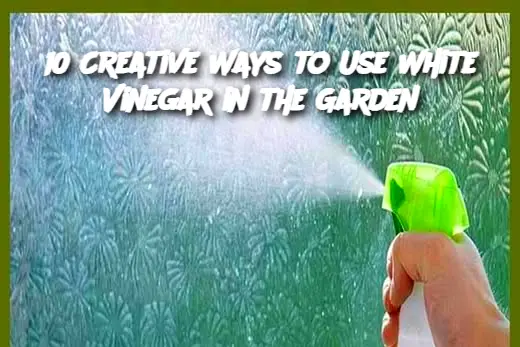ADVERTISEMENT
Essential Oils: You can add a few drops of essential oils (like peppermint or eucalyptus) to any of your vinegar solutions to increase their effectiveness or create a pleasant scent.
Garlic or Hot Pepper: For a stronger insect deterrent, add crushed garlic or chopped hot peppers to your vinegar spray to make the smell more potent.
Frequently Asked Questions:
Can white vinegar be harmful to my plants? White vinegar is generally safe for most plants when used properly. However, its acidity can harm plants if applied in high concentrations or if it comes into direct contact with the roots. Always dilute vinegar and apply carefully.
Can I use any type of vinegar in my garden? While apple cider vinegar and other types of vinegar are beneficial for some garden tasks, white vinegar is often the most effective and economical option for pest control and soil management due to its higher acidity.
How often should I apply white vinegar for pest control? You can apply the vinegar solution every few days until you notice a reduction in pests. For long-term pest prevention, use vinegar intermittently, especially during peak pest seasons.
Can I mix white vinegar with other chemicals or pesticides? It’s best to avoid mixing white vinegar with other chemicals, as it can neutralize some solutions or create harmful reactions. Use vinegar-based solutions separately from other pesticides or fertilizers.
Is white vinegar safe for pets? While white vinegar is non-toxic to pets, you should be cautious when using it outdoors, especially if your pets tend to eat plants. Always ensure that any vinegar treatments have dried before your pets come into contact with treated areas.
With these 10 creative uses for white vinegar, you can take advantage of a powerful, eco-friendly solution to enhance the health and beauty of your garden!
ADVERTISEMENT
